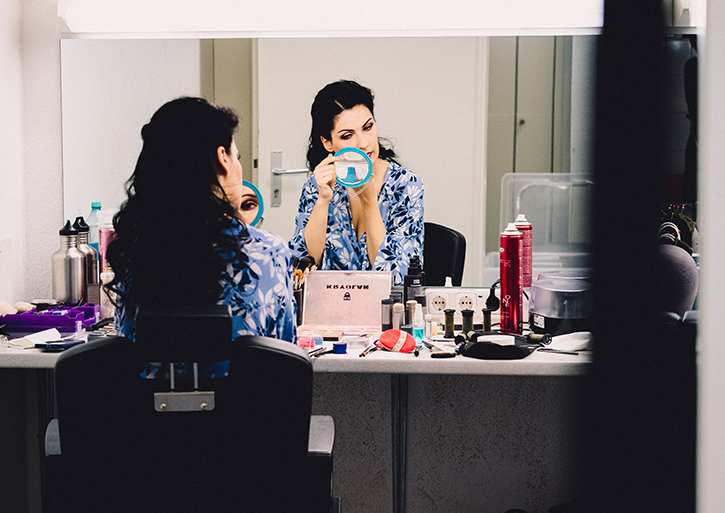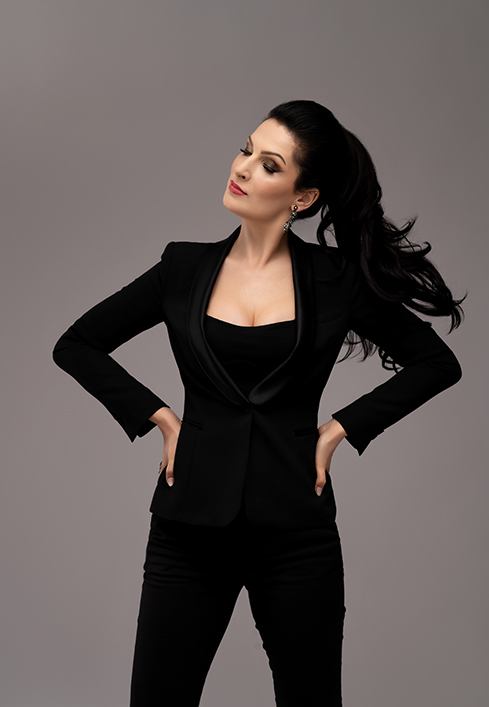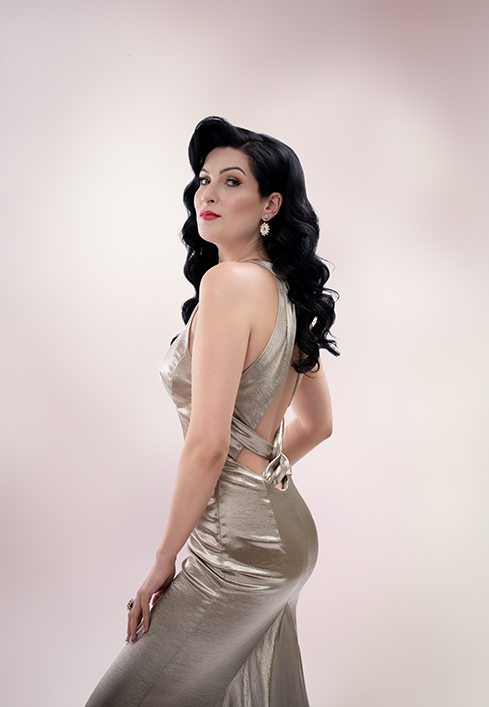
Soprano Adela Zaharia: ‘Violetta fits my voice like a glove’
After her debut at Dutch National Opera in 2021 as Donna Anna in Mozart’s Don Giovanni, Romanian soprano Adela Zaharia returns to one of her most beloved roles: Violetta Valéry in Verdi’s La traviata. She is a brilliant new addition to a long line of legendary compatriots who have triumphed in one of Verdi’s most touching and demanding roles.
Text: Benjamin Rous
First impressions matter
Soprano Adela Zaharia first encountered Verdi’s La traviata when she was a student in the city of Cluj, her native Romania. Does she remember her initial reaction? “I’m going to give a very unromantic answer: I didn’t understand much; it didn’t quite suit my taste. I felt that the opera was missing important parts of the story. It became really clear to me for the first time and left a deep impression when I read Alexandre Dumas fils’ La Dame aux Camélias, the book on which the opera is based. Everything in it is so much more detailed; the feelings and thoughts of the characters take on a completely new dimension. So, it took a while before it really resonated with me.”
How did the opera, after you grew to love it, become a part of your life as a singer?
“From the age of 22, I was constantly offered La traviata. However, I felt I had to wait because it’s such a complex character, and vocally, it’s such a demanding role. You need endurance, and your voice has to be able to adapt to the different emotions and atmospheres in each act. Although it’s a gradual, organic development, the role is very different from the first act to the last. I had so much respect for this opera and this role that I didn’t want to sing it until I felt completely ready – both vocally and psychologically.”
How did you experience the role once that moment finally arrived? Did it take you a long time to make Violetta your own?
“It’s actually the only role that ever felt like it fit my voice perfectly. When I start studying a new role, there’s usually a process of about two or three weeks where it feels quite chaotic, my voice and body need to adjust, and I have to find a way of singing that feels healthy. But when I first opened my Traviata score and went through it with a pianist, it felt incredibly natural. That was such a revelation to me.
My first thought was, ‘Oh, I think Violetta and I will remain good friends for a very long time.’ Of course, it’s true that the more you sing the role, the closer you get to the character, and the more new colours you discover in the music.”
‘The more you sing the role, the closer you get to the character’
If indeed you get so close to a character and make it your own, how do you reconcile those views with directors’ concepts?
“I think the ideas of the directors I’ve worked with so far haven’t strayed too far from the classical story of the character and the opera. It’s all about adding more layers. Sometimes the director brings up things that have never occurred to you, and perhaps they may seem far-fetched at first. But you should at least try and see how the character you’ve built would react in that new context, even if it means pushing your boundaries and re-evaluating. After all, that’s what life is about: experimenting, taking risks, figuring out what fits and what doesn’t.”

In Amsterdam, Tatjana Gürbaca’s production presents Violetta as a victim of a male-dominated, opportunistic and materialistic society.
“I actually think that this is very close to the original idea of Violetta and La traviata. During her time in Paris, that was precisely the situation: a male-dominated society. She was a woman with an unfortunate background who didn’t choose this path in life. Perhaps she would have preferred a quiet life in the countryside with a family, and so on. But she never had that option, so she had to play the cards that life dealt her. Maybe this production isn’t what you would normally expect from La traviata, but I believe it’s a very powerful production. I look forward to it because I haven’t worked with Tatjana before. She is such a talented director, and I know that many of my colleagues found it very inspiring to work with her.”
Violetta is undoubtedly a highly emotional role to sing. Have you ever felt that it gets too close?
“That risk is ever-present. I am highly empathetic, and I believe a significant part of my stage success comes from striving to deeply connect with my characters.. Violetta is currently one of my most intense roles. I sing a lot of bel canto, but I feel that there is always a kind of psychological distance to the character, except in moments of madness, of course. But in general, it’s easier not to get lost in it. In La traviata, it becomes very intense, especially in the final act. From my first production, I noticed that it demands much more from me – emotionally and vocally. When you become so involved with the character, you tend to let go of the rational side that should take care of yourself and your voice a bit more. That’s why I always make sure not to do too many La traviata performances per season.”
Besides the highly emotional final act, what are other key moments in the opera for you?
“Absolutely, the big duet with the baritone in the second act, when you first feel the full extent of Violetta’s pain and despair. When Germont confronts her and asks her to leave Alfredo, she is reminded of the reality of her life and her past. Everything is laid at her feet at a time when she finally thinks she can find true love and happiness, that she can leave her painful past behind. That hope is shattered in an instant. In Amsterdam, I have the chance to perform this duet with one of my favourite singers in the world and, coincidentally, a fellow countryman: George Petean. When I was still studying in Romania, we all knew about his fantastic career and talent, and I admire him immensely. So, it will be incredible to sing it with him.”
“My debut at Dutch National Opera in Don Giovanni was such an amazing experience, in every way. You have such a wonderful audience, which I rarely encounter anywhere else in the world. So, I am very happy that I could come back so soon and in a role that is so dear to me.”

